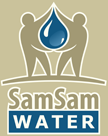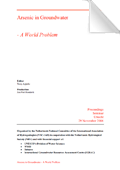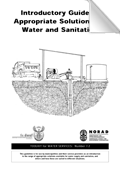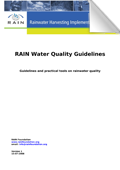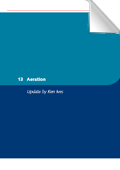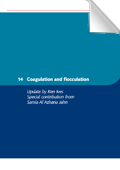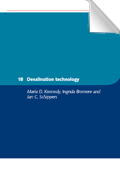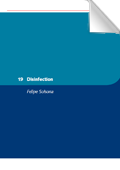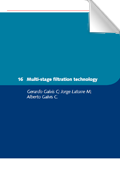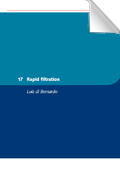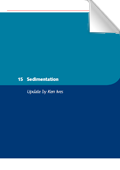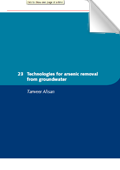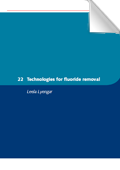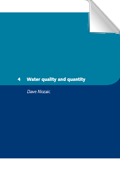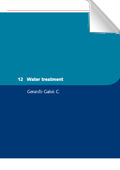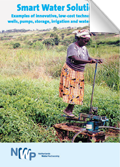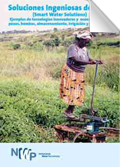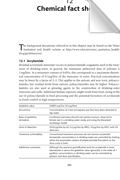
Filter by category
Or search
Loading search form...
Explanation
SamSamWater makes information on water and sanitation easy to find and accessible for all. This page contains a database with practical information, data and (GIS)maps.
We believe information should be shared to make water and sanitation projects more successful. The information in the database is gathered from numerous sources, such as research institutes, companies, NGOs and government organisations.
Do you have information we can integrate into this database, or if you have comments or questions, please contact us!
21 items found within the categories:
Water quality, treatment and purification
Clear search filter.
Tony Appelo, IAH (2006)
WHO, WHO (2006)
Richard Holden, Tania Swanepoel, DWAF (2004)
NWP, NWP (2006)
RAIN Foundation, RAIN Foundation (2008)
Jo Smet, Christine van Wijk, IRC (2002)
Jo Smet, Christine van Wijk, IRC (2002)
Jo Smet, Christine van Wijk, IRC (2002)
Jo Smet, Christine van Wijk, IRC (2002)
Jo Smet, Christine van Wijk, IRC (2002)
Jo Smet, Christine van Wijk, IRC (2002)
Jo Smet, Christine van Wijk, IRC (2002)
Jo Smet, Christine van Wijk, IRC (2002)
Jo Smet, Christine van Wijk, IRC (2002)
Jo Smet, Christine van Wijk, IRC (2002)
Jo Smet, Christine van Wijk, IRC (2002)
NWP, NWP (2010)
NWP, NWP (2006)
NWP, NWP (2006)
NWP, NWP (2006)
WHO, WHO ()
Water quality, treatment and purification
Clear search filter.
Arsenic in groundwater – a world problem
Tony Appelo, IAH (2006)
Symposium organised by IAH’s Dutch Chapter and the Netherlands’ Hydrological Society, 29 November 2006, Utrecht, The Netherlands
Arsenic contamination of groundwater has occurred in various parts of the world, most notably the Ganges Delta of Bangladesh and West Bengal, India, causing serious arsenic poisoning amongst large numbers of people. It is a natural occurring high concentration of arsenic in deeper levels of groundwater, which became a high-profile problem in recent years due to the use of deep tube wells for water supply in the Ganges Delta. Parts of Thailand, Taiwan, Argentina, Chile and China have also been affected. (source)
Guidelines for drinking-water quality
WHO, WHO (2006)
The document describes a “Framework for Drinking-water Safety” and discusses the roles and responsibilities of different stakeholders, including the complementary roles of national regulators, suppliers, communities and independent “surveillance” agencies.
Introductory Guide to Appropriate Solutions for Water and Sanitation
Richard Holden, Tania Swanepoel, DWAF (2004)
This guideline is for use by municipalities and their service providers as an introduction to the range of appropriate solutions available for water supply and sanitation, and where and how these are suited to different situations. (source)
l'Eau: des Solutions Simples et Économiques
NWP, NWP (2006)
Cette brochure sur l’eau, comme sa contrepartie ‘Des Solutions intelligentes pour l’assainissement’ (Smart Sanitation Solutions), relate des exemples d’innovations à petite échelle telles que la désinfection solaire de l’eau, l’emploi de filtres à eau efficaces et peu coûteux, le recours à l’irrigation goutte à goutte à bas-coût et l’utilisation de pompes manuelles fabriquées localement et cinq fois moins chères que les pompes importées. En adoptant ces technologies, les foyers défavorisés dans les zones rurales peuvent doubler, voire tripler leur revenu annuel.
Les solutions à petite échelle ont montré qu’elles pouvaient être économiquement rentables. Installées en grand nombre, elles peuvent à la fois améliorer la santé publique, relancer la production agricole et générer des activités locales. C’est pourquoi la diffusion à grande échelle de ces technologies est essentielle. (source)
Serie:
Smart water solutions (all items in this serie)
Categories:
Technology and techniques
Water quality, treatment and purification
Smart water solutions (all items in this serie)
Categories:
Technology and techniques
Water quality, treatment and purification
RAIN Water Quality Guidelines; Guidelines and practical tools on rainwater quality
RAIN Foundation, RAIN Foundation (2008)
This document addresses RAINs guidelines towards water quality and gives criteria and practical guidelines to improve and maintain an acceptable water quality of harvested rainwater for drinking purpose. (source)
Small Community Water Supplies: Aeration (chapter 13)
Jo Smet, Christine van Wijk, IRC (2002)
(source)
Serie:
Small Community Water Supplies: Technology, people and partnership (all items in this serie)
Categories:
Technology and techniques
Water quality, treatment and purification
Small Community Water Supplies: Technology, people and partnership (all items in this serie)
Categories:
Technology and techniques
Water quality, treatment and purification
Small Community Water Supplies: Coagulation and flocculation (chapter 14)
Jo Smet, Christine van Wijk, IRC (2002)
(source)
Serie:
Small Community Water Supplies: Technology, people and partnership (all items in this serie)
Categories:
Technology and techniques
Water quality, treatment and purification
Small Community Water Supplies: Technology, people and partnership (all items in this serie)
Categories:
Technology and techniques
Water quality, treatment and purification
Small Community Water Supplies: Desanilation Technology (chapter 18)
Jo Smet, Christine van Wijk, IRC (2002)
(source)
Serie:
Small Community Water Supplies: Technology, people and partnership (all items in this serie)
Categories:
Technology and techniques
Water quality, treatment and purification
Small Community Water Supplies: Technology, people and partnership (all items in this serie)
Categories:
Technology and techniques
Water quality, treatment and purification
Small Community Water Supplies: Disinfection (chapter 19)
Jo Smet, Christine van Wijk, IRC (2002)
(source)
Serie:
Small Community Water Supplies: Technology, people and partnership (all items in this serie)
Categories:
Technology and techniques
Water quality, treatment and purification
Small Community Water Supplies: Technology, people and partnership (all items in this serie)
Categories:
Technology and techniques
Water quality, treatment and purification
Small Community Water Supplies: Multi-stage filtration (chapter 16)
Jo Smet, Christine van Wijk, IRC (2002)
(source)
Serie:
Small Community Water Supplies: Technology, people and partnership (all items in this serie)
Categories:
Technology and techniques
Water quality, treatment and purification
Small Community Water Supplies: Technology, people and partnership (all items in this serie)
Categories:
Technology and techniques
Water quality, treatment and purification
Small Community Water Supplies: Rapid filtration (chapter 17)
Jo Smet, Christine van Wijk, IRC (2002)
(source)
Serie:
Small Community Water Supplies: Technology, people and partnership (all items in this serie)
Categories:
Technology and techniques
Water quality, treatment and purification
Small Community Water Supplies: Technology, people and partnership (all items in this serie)
Categories:
Technology and techniques
Water quality, treatment and purification
Small Community Water Supplies: Sedimentation (chapter 15)
Jo Smet, Christine van Wijk, IRC (2002)
(source)
Serie:
Small Community Water Supplies: Technology, people and partnership (all items in this serie)
Categories:
Technology and techniques
Water quality, treatment and purification
Small Community Water Supplies: Technology, people and partnership (all items in this serie)
Categories:
Technology and techniques
Water quality, treatment and purification
Small Community Water Supplies: Technologies for arsenic removal (chapter 23)
Jo Smet, Christine van Wijk, IRC (2002)
(source)
Serie:
Small Community Water Supplies: Technology, people and partnership (all items in this serie)
Categories:
Technology and techniques
Water quality, treatment and purification
Small Community Water Supplies: Technology, people and partnership (all items in this serie)
Categories:
Technology and techniques
Water quality, treatment and purification
Small Community Water Supplies: Technologies for fluoride removal (chapter 22)
Jo Smet, Christine van Wijk, IRC (2002)
(source)
Serie:
Small Community Water Supplies: Technology, people and partnership (all items in this serie)
Categories:
Technology and techniques
Water quality, treatment and purification
Small Community Water Supplies: Technology, people and partnership (all items in this serie)
Categories:
Technology and techniques
Water quality, treatment and purification
Small Community Water Supplies: Water quality and quantity (chapter 4)
Jo Smet, Christine van Wijk, IRC (2002)
In this chapter guidelines are given for the quality and quantity of water required for different levels of service. (source)
Serie:
Small Community Water Supplies: Technology, people and partnership (all items in this serie)
Categories:
Water quality, treatment and purification
Small Community Water Supplies: Technology, people and partnership (all items in this serie)
Categories:
Water quality, treatment and purification
Small Community Water Supplies: Water treatment (chapter 12)
Jo Smet, Christine van Wijk, IRC (2002)
(source)
Serie:
Small Community Water Supplies: Technology, people and partnership (all items in this serie)
Categories:
Technology and techniques
Water quality, treatment and purification
Small Community Water Supplies: Technology, people and partnership (all items in this serie)
Categories:
Technology and techniques
Water quality, treatment and purification
Smart Disinfections Solutions
NWP, NWP (2010)
This booklet aims to help achieve the drinking water targets as stated in Millennium Development Goals 7: halving the proportion of people who don't have sustainable access to safe drinking water and basic sanitation. In 2009 some 884 million people still did not have access to an improved water facility.
Experience shows that access to 'improved' water supply facilities is no guarantee for safe and reliable water. Especially in developing countries tap water can be unsafe, because of inadequate treatment, recontamination during transport or storage or at home. 'Point of use' and small-scale treatment is a promising strategy to improve access to safe drinking water, in particular for the poor.
Recent studies show that PoU reduces diarrhea morbidity for children under 5 by 29 % and is more effective than source water treatment, piped water on premises and improved public water supply. All the more reason to provide those who advise on systems for home water treatment in rural areas with current information on simple methods to improve drinking water for households.
This booklet, part of the Smart Water Solutions series, can help them decide which method is best for a specific situation and what effect can be expected with respect to reduction of harmful micro-organisms. It also gives some price indications and refers to specific websites for further information.
This publication is a co-production of NWP (Netherlands Water Partnership), Aqua for All and Witteveen+Bos. (source)
Serie:
Smart water solutions (all items in this serie)
Categories:
Technology and techniques
Water quality, treatment and purification
Smart water solutions (all items in this serie)
Categories:
Technology and techniques
Water quality, treatment and purification
Smart Water Solutions (English)
NWP, NWP (2006)
This booklet on water gives examples of innovations such as the use of sunlight to purify water, effective low-cost water filters, low-cost drip irrigation and locally prodcued hand pumps that are five times cheaper than imported pumps. By usiing these technologies, poor rural families can double or even triple their annual income.
The book is designed as a source of inspiration, rather than a 'how to' manual.
This publication is a collaborative effort by eight organisations: NWP (Netherlans Water Partnership), Practica, Simavi, IRC, Agromisa, NCDO, Aqua for All, Partners for Water. (source)
Serie:
Smart water solutions (all items in this serie)
Categories:
Irrigation, agriculture and land husbandry
Technology and techniques
Water quality, treatment and purification
Smart water solutions (all items in this serie)
Categories:
Irrigation, agriculture and land husbandry
Technology and techniques
Water quality, treatment and purification
Soluciones Ingeniosas de Agua
NWP, NWP (2006)
Este folleto sobre agua, al igual que su homólogo Smart Sanitation Solutions (Soluciones Inteligentes en Instalaciones Sanitarias), ofrece ejemplos de soluciones innovadoras como el uso de la luz solar para purificar agua, filtros de agua baratos, sistemas de riego por goteo de bajo costo y bombas de mano de producción local que son cinco veces más baratas que las bombas importadas. (source)
Serie:
Smart water solutions (all items in this serie)
Categories:
Irrigation, agriculture and land husbandry
Technology and techniques
Water quality, treatment and purification
Smart water solutions (all items in this serie)
Categories:
Irrigation, agriculture and land husbandry
Technology and techniques
Water quality, treatment and purification
Soluções Hídricas Inteligentes
NWP, NWP (2006)
Este livrete sobre água, assim como a sua contrapartida Soluções Inteligentes de Sanidade Pública (Smart Sanitation Solutions), oferece exemplos de inovações como a utilização da luz solar para a purificação de água,filtros de água eficazes de custo reduzido,irrigação gota a gota a custo reduzido e bombas manuais produzidas localmente que são cinco vezes mais baratas do que bombas importadas.Mediante a utilização destas tecnologias, as famílias rurais pobres podem duplicar ou até mesmo triplicar os seus rendimentos anuais.
Soluções de pequena escala demonstraram ser mais rentáveis.Ao serem implementadas em grande número, podem ao mesmo tempo impulsionar a saúde, melhorar a produção agrícola e gerar actividades económicas.É por isso que éfundamental a disseminação em grande escala destas tecnologias.Tecnologias inteligentes como estas nos ajudam a enfrentar imediatamente a pobreza. (source)
Serie:
Smart water solutions (all items in this serie)
Categories:
Technology and techniques
Water quality, treatment and purification
Smart water solutions (all items in this serie)
Categories:
Technology and techniques
Water quality, treatment and purification
WHO Chemical fact sheets
WHO, WHO ()
A list with the chemical properties and effects of substances in relation to water quality and hygiene (source)
